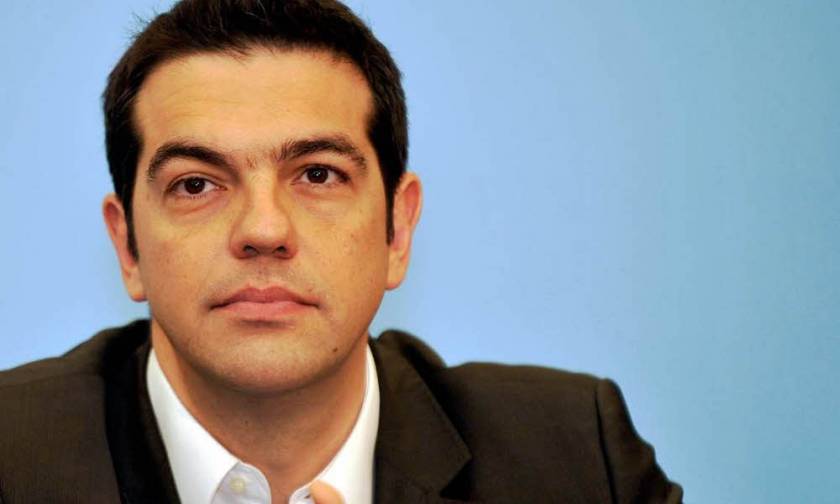Hugo Dixon: Tsipras needs to form a stable and credible government

If Prime Minister Alexis Tsipras does form a credible and stable government and has a constructive relation with creditors then I think he can look towards a better future for Greece; not in the next 6 or 12 months, but in the period beyond that,” Hugo Dixon, columnist of Reuters and New York Times among others, said in an interview with ANA-MPA.
“Nobel prize winning economist Amartya Sen made a very good analogy and said that austerity is like rat poison and structural reforms are like the antibiotic that a patient needs to take if he has fever,” Dixon stated. “The problem in Greece’s case is that it is required to take a pill that mixes the good antibiotic with the bad rat poison. Unfortunately, Greece does have to take a little more of rat poison; that is the reality of how things are,” he added.
Dixon underlined that “we hope to have a quick lifting of capital control and I think the ECB will be prepared to stand ready to act to the Greek banking system once Greek banks have been properly recapitalized and provided there is a stable and proper government. In a good case scenario that could happen later this year, not early, but towards the end of this year.”
“Second thing is that Tsipras will get, provided he is implementing, a debt relief package; not a debt haircut but it will result to even lower interest rates and longer period to repay the loan.... The debt relief that Greece could get could be quite big and it won’t be a haircut, but it would have the same effect as a haircut,” Dixon stated.
He estimated, however, that GDP would shrink even with a debt haircut. “I do not think it is much you can do to prevent the economy shrinking this year. The question is when the economy can start growing. Clearly this year and the first half of next year are certainly going to be extremely difficult because of the impact of extra austerity, the capital control and the overwhelming knock to business and consumer confidence by the terrible events of the last months. The next 12 months there is not much you can do about growth.”
According to Dixon, the most important problem that the current government has to deal with is forming a stable and credible government. “The two important issues that are linked together are trust and implementation. Because they do not really trust Tsipras to implement. So what he needs to do is to form a stable and credible government. Now, he has a great opportunity to form a new government because of the split in SYRIZA.”
He also considers that SYRIZA cannot avoid splintering. “I think it is unable to avoid splintering and I think it is desirable that it splits. I think it is a good thing for Greece and Tsipras because then he could form a new government that is not as extreme as the previous government and which will be more competent that the previous government. The last six months of Tsipras’ rule had been fairly incompetent as well.”
According to the British columnist, there are three options: “One is snap elections, not so snap though, as you have to go through the negotiations on the MoU. And in these new elections, Tsipras runs without the Left Platform and the other people that have been rebels within his party like (former Finance Minister Yanis) Varoufakis and (Parliament President) Zoi Konstantopoulou. The second option is a national unity government where Tsipras stays prime minister but kicks out the rebels and he then forms a new government with New Democracy and To Potami and maybe PASOK. Both these options are quite good options. The third option is if he somehow manages to get SYRIZA together but in an extremely unhappy marriage that does not do a proper job and it leads to one disaster after the other. I do not recommend this option.”
The full interview of Hugo Dixon to Lila Chotzoglou follows:
- What do you think is the most important problem that the current government has to deal with?
It is actually forming a stable and credible government. The two important issues that are linked together are trust and implementation. Because they do not really trust Tsipras to implement. So what he needs to do is to form a stable and credible government. Now, he has a great opportunity to form a new government because of the split in SYRIZA.
- Do you think that SYRIZA cannot avoid splintering?
I think it is unable to avoid splintering and I think it is desirable that it splits. I think it is a good thing for Greece and Tsipras because then he could form a new government that is not as extreme as the previous government and which will be more competent that the previous government. The last six months of Tsipras’ rule had been fairly incompetent as well.
- Are snap elections a one-way road for Greece? Do you see other options?
There are three ways this development could proceed. One is snap elections, not so snap though, as you have to go through the negotiations on the MoU. And in these new elections, Tsipras runs without the Left Platform and the other people that have been rebels within his party like (former Finance Minister Yanis) Varoufakis and (Parliament President) Zoi Konstantopoulou. The second option is a national unity government where Tsipras stays prime minister but kicks out the rebels and he then forms a new government with New Democracy and To Potami and maybe PASOK. Both these options are quite good options. The third option is if he somehow manages to get SYRIZA together but in an extremely unhappy marriage that does not do a proper job and it leads to one disaster after the other. I do not recommend this option.
- Why do you think that Germany opposes to a debt haircut?
I do not think that any country would like to admit that it has lost money because it lent money to Greece. It is not just Germany. Debt haircut is difficult for most of the eurozone countries. It is much easier to extend the loan and have low interest rates and pretend that Greece will repay the money that has borrowed rather than a haircut where you acknowledge that you will not take back the money you have lent.
- Do you think that growth can be achieved without a debt relief?
Yes.
- The European Commission is now predicting GDP will shrink 2 percent to 4 percent this year.
Even if you have a debt haircut it will still shrink to 2 percent this year. I do not think it is much you can do to prevent the economy shrinking this year. The question is when the economy can start growing. Last year there was a little bit of growth in the economy. It is not beyond imagination to say that it could be more growth of the economy looking forward. But clearly this year and the first half of next year are certainly going to be extremely difficult because of the impact of extra austerity, the capital control and the overwhelming knock to business and consumer confidence by the terrible events of the last months. The next 12 months there is not much you can do about growth. However, if Tsipras does form a credible and stable government and has constructive relation with creditors then I think he can look towards a better future for Greece; not in the next 6 or 12 months, but in the period beyond that. And there are several things that you would expect to get. We hope to have a quick lifting of capital control and I think the ECB will be prepared to stand ready to act to the Greek banking system once Greek banks have been properly recapitalized and provided there is a stable and proper government. In a good case scenario that could happen later this year, not early, but towards the end of this year.
Second thing is that Tsipras will get, provided he is implementing, a debt relief package; not a debt haircut but it will result to even lower interest rates and longer period to repay the loan.... The debt relief that Greece could get could be quite big and it won’t be a haircut, but it would have the same effect as a haircut.
- Is it realistic for the Greek bonds to be included in the ECB’s quantitative easing programme?
It is realistic. As ECB president Mario Draghi and Vice President Vitor Constancio said at the last press conference about ten days ago, Greece has to be in a programme and credibly implementing the programme. So we are getting back to this issue again of implementation and credibility. Greece could be in a programme by the end of August. I do not think that it will meet the 20 August deadline but it will probably spread a little bit. Once you get the programme and be implemented a bit, and if there is an agreement on the programme and immediately a new election, the ECB will wait after the election, and if after the election you will have a credible new government, probably led by Tsipras again, but with a different parliamentary majority and a more stable and constructive parliamentary majority, then the ECB will move quite fast to include Greece in the easing programme and will have huge benefits for Greece. The yields of bonds would fall substantially and it would be a great, a huge shot of adrenaline into the economy. I can see all these things happening maybe by the end of the year. Things could easily go wrong, but in the best case scenario all those things happening by the end of the year; quantitative easing, lifting of capital controls and a package of debt relief. The mood will change quite dramatically and going into the second half of next year you can even have growth, not great, and not guaranteed either.
- Does austerity policy imposed by Germany in the rest of Europe eventually leads to social explosion, not only in Greece, but in other countries of southern Europe?
The austerity policy has been excessive. It was necessary to have austerity because the Greek public finances were way out of balance and you needed to do something to increase taxes and cut spending but what we had was austerity after austerity that led to shrinkage of the economy.
Apart from Greece, this policy has been adopted by four other countries – Ireland, Spain, Portugal and Cyprus – and all these countries are growing again this year and some even last year. Not to deny there are some social problems like high youth unemployment in Spain. Even though these policies have been badly designed and excessive, you can still emerge from them and see light at the end of the tunnel.
People often confuse structural reforms with austerity. There are different things though. Austerity is cutting spending and increasing taxes. And reforms are important things like reducing the amount of early retirement, making people pay their taxes, dealing with justice system, corruption, labour market, product market etc.
Nobel prize winning economist Amartya Sen made a very good analogy and he said that austerity is like rat poison and structural reforms are like the antibiotic that a patient needs to take if he/she has fever. The problem in Greece’s case is that it is required to take a pill that mixes the good antibiotic with the bad rat poison. Unfortunately, Greece does have to take a little more of rat poison; that is the reality of how things are. It is not ideal, but it really does need the antibiotic of further reforms and it is really important not to confuse the two.













